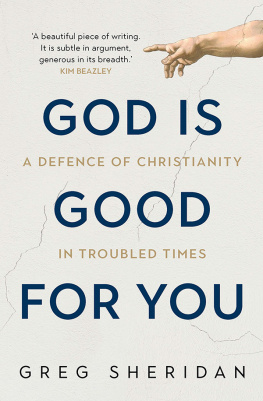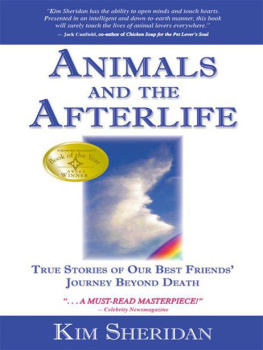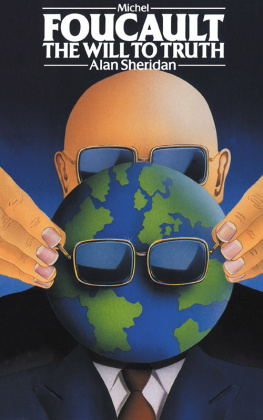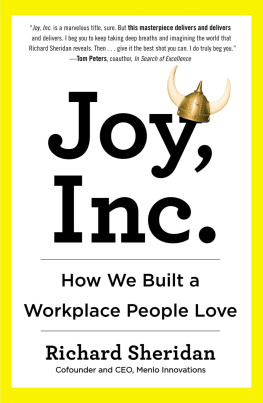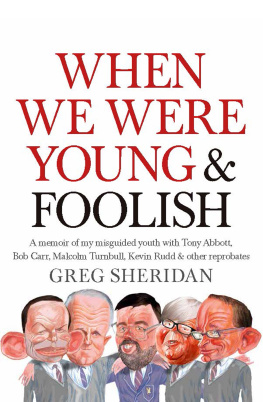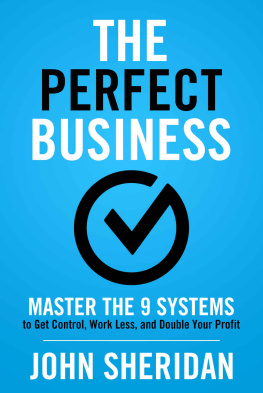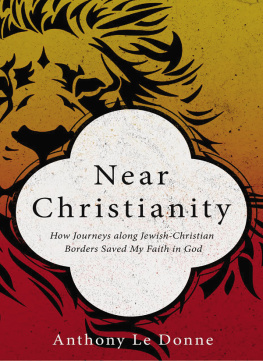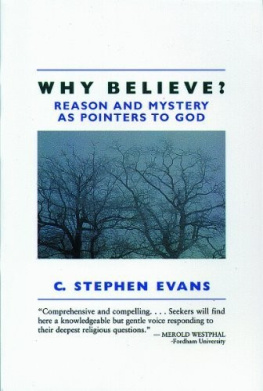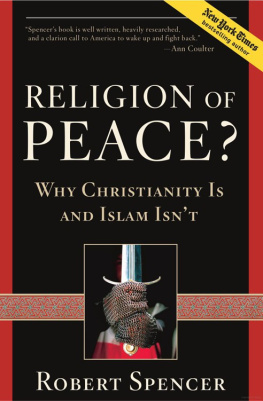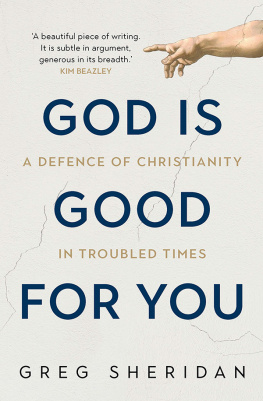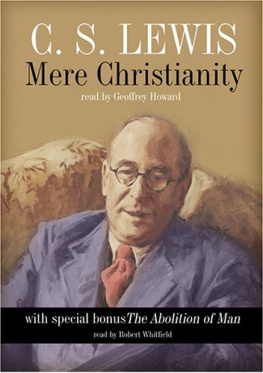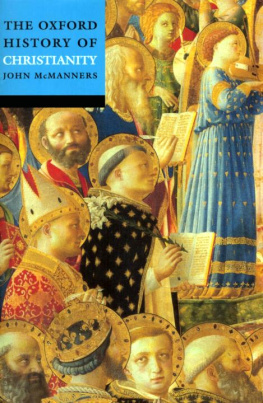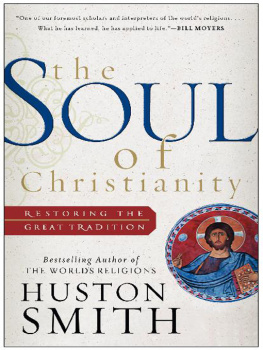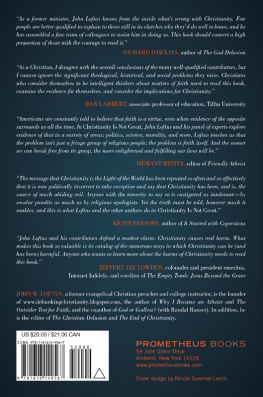It is not easy being a Christian and it will get harder. It is a product of faith and experience. But faith fluctuates and is always challenged. It is helped by knowledge, both of the essence of faith and its societal situation. Greg Sheridan seeks that understanding. This book is the best I have read for a long time that meets that need in me, and I suspect will for many others.
Kim Beazley
God Is Good for You is insightful, compelling and challenging. Australian society is experiencing rapid change on many levels. Greg Sheridan has identified the shift in the landscape that pertains to church and faith in general. Though there is an obvious decline in some expressions of the Australian Church, he also identifies the new frontiers that defy this trend.
Wayne Alcorn, Senior Pastor, Hope Centre Church, Brisbane, President of Australian Christian Churches
Anyone concerned about the depletion of God from the Western imagination should read Greg Sheridans God Is Good for You.
Anthony Fisher, Catholic Archbishop of Sydney
Bluntly put, I am a sceptic, playing on the other team. But Greg Sheridans honesty confronting the steep decline in belief will recruit non-believers to join his lively hike through the frontline trenches of the argument whether God exists. No one could have read more of the literature or wrestled longer with it. Nor treated the other sideus stubborn doubterswith more courtesy.
Bob Carr
What a wonderful surprise! Greg Sheridans God Is Good for You is rightly sober about the dire prospects Christianity faces in the post-Christian West, and appropriately concerned about the many good things we will lose if Christianity goes. But this is a hopeful book. In companionable prose, Sheridan makes the ancient faith seem fresh and exciting, and introduces readers to ordinary believers whose joy invites both once-believers and never-believers to give God a chance This stirring book offers both a warning to the West and a way out of our civilizational crisis. Take and readbefore its too late.
Rod Dreher, author of The Benedict Option
Greg Sheridan is to be congratulated on his robust and enlightening defence of religious belief, contrasting the aridity of atheism with the cultural and intellectual riches that accrue from faith. It is all the more impressive coming from the pen of a distinguished journalist, with his curiosity about human nature and long experience of the affairs of the world.
Piers Paul Read, author of Alive!, The Free Frenchman and A Married Man
God Is Good for You is, well, good for you, no matter where you find yourself religiouslybeliever, unbeliever, skeptic, seeker. Believers will find their faith strengthened; unbelievers will discover some stereotypes challenged; skeptics may think a bit harder; and seekers just may find.
George Weigel, author of Witness to Hope
BY THE SAME AUTHOR
When We Were Young and Foolish
Cities of the Hot Zone
Asian Values, Western Dreams
Tigers: Leaders of the New Asia-Pacific
The Partnership
Living with Dragons
First published in 2018
Copyright Greg Sheridan 2018
All rights reserved. No part of this book may be reproduced or transmitted in any form or by any means, electronic or mechanical, including photocopying, recording or by any information storage and retrieval system, without prior permission in writing from the publisher. The Australian Copyright Act 1968 (the Act) allows a maximum of one chapter or 10 per cent of this book, whichever is the greater, to be photocopied by any educational institution for its educational purposes provided that the educational institution (or body that administers it) has given a remuneration notice to the Copyright Agency (Australia) under the Act.
Extract from reproduced with permission from Les Murray, care of Margaret Connolly & Associates Pty Ltd, and with permission from Carcanet Press Ltd, copyrighted by Les Murray
Excerpts from The Last Hellos and Poetry and Religion from NEW SELECTED POEMS by Les Murray. Copyright 2007, 2012, 2014 by Les Murray. Reprinted by permission of Farrar, Straus and Giroux
Extract from reproduced by arrangement with the licensor, The James McAuley Estate, c/- Curtis Brown (Aust) Pty Ltd
Extract from reproduced with permission from Planetshakers
Every effort has been made to trace the holders of copyright material. If you have any information concerning copyright material in this book please contact the publishers at the address below.
Allen & Unwin
83 Alexander Street
Crows Nest NSW 2065
Australia
Phone: (61 2) 8425 0100
Email:
Web: www.allenandunwin.com

ISBN 978 1 76063 260 1
eISBN 978 1 76063 679 1
Internal design by Luke Causby
Index by Penny Mansley
Set by Midland Typesetters, Australia
Cover image: Sistine Chapel detail
Cover design: Luke Causby/Blue Cork
For Jessie
CONTENTS
Fools say in their hearts, There is no God. The Lord looks down from heaven on humankind to see if there are any who are wise, who seek after God.
Psalm 14, Book of Psalms
What will it mean for us, when God is dead? Who, then, can humanity converse with, when we lose our oldest friend?
The loss of Christianity, and not only of Christianity but of much other religious belief and practice, will change us in ways we cannot possibly imagine. There will be no purpose beyond ourselves and ultimately Western humanity will look in the mirror and say: Im bored with myself. And then, out of that boredom, who can imagine? Human boredom and confusion have often had deadly consequences. In itself, this is not the reason for holding on to Christianity. You cannot believe something transcendent because it might be socially useful. You believe it if you think its true and it attracts some part of your soul; you want to believe it. Yet our identity as human beings has been so intimately woven by our relationship with God. What will we be like without him?
Am I exaggerating the potential death of God?
In the West, Christianity is in radical decline. It is not exactly dying. It will always be there in some measure. But it wont be there remotely as a social consensus, a societys creed and mythand more than mythits source of values and meanings. Human beings are formed in a culture, and a culture without God will form different human beings. The public square will be naked. It will not be empty for long. This is where we can talk about the death of God, as 19th-century radicals prophesied with joy and 20th-century Marxists thought they had accomplished. God will not be dead to individuals, but he will be in hiding in our society, banished from public consciousness. Rumours of his presence, reported sightingsfleeting glimpseswill persist, but the public culture will be inattentive at best, abusive at worst. And yet, at the same time, there will be an aching nostalgia for God.
It is no exaggeration to say that Christianity is in nearly existential crisis in the West.
Australia is about to become, if it has not already become, a majority atheist nation. This is something unprecedented in all the long Aboriginal and European and modern multicultural history of our land. It is worth pausing to remark. It is worth considering what we stand to lose, wondering if perhaps still there is a way we might recover this Christianity, or some of it, if we want to. These are the questions posed in this book.

